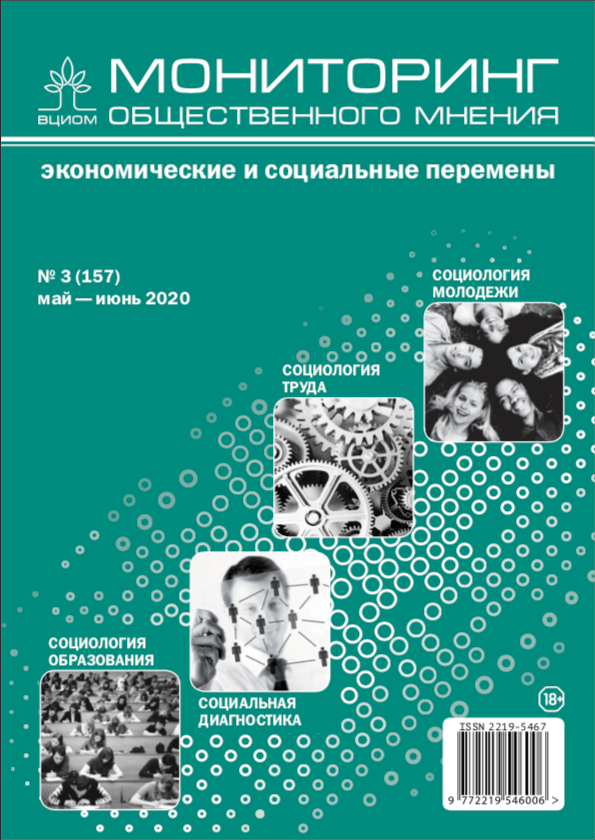Обеспеченные или нищие: что думают молодые россияне о будущей старости и как намерены действовать?
DOI:
https://doi.org/10.14515/monitoring.2020.3.1607Ключевые слова:
молодежь, старость, пенсия, занятость, сбережения, индивидуальные пенсионные накопления, гарантированный пенсионный планАннотация
Российское государство, акцентируя внимание на потребности экономики в «длинных деньгах», а также на необходимости повышения уровня жизни пенсионеров, предпринимает попытки вовлечения населения в систему индивидуальных пенсионных накоплений. В частности, в 2019 г. был представлен гарантированный пенсионный план (ГПП). Одним из ключевых адресатов накопительных инструментов является молодежь. Проведенное исследование позволило выяснить, что молодежь думает о будущей старости и ее материальном обеспечении, а также как она относится к ГПП: готова ли участвовать, как оценивает преференции для участников. Методы исследования: анкетный опрос жителей Москвы в возрасте до 30 лет (N = 500) и фокус-групповые интервью со столичной молодежью (N = 4).
Большинство участников опроса не готовы участвовать в ГПП, и чем старше респонденты, тем меньше среди них доля готовых включиться в эту схему. В основе этих установок лежит недостаточный размер доходов и в еще большей степени — недоверие к негосударственным пенсионным фондам. Мало рассчитывая на какую-либо пенсию, молодежь планирует обеспечивать свою старость прежде всего за счет сбережений, рентных доходов, доходов от бизнеса и продолжения работы после наступления пенсионного возраста. Несмотря на сомнения в стабильности занятости до наступления старости, в возможности накопить и сохранить сбережения, найти работу в пожилом возрасте, молодежь настроена оптимистично: собственная старость молодым людям представляется гораздо более благополучной, чем жизнь нынешних пенсионеров. Так, фактическое положение сегодняшних пожилых людей абсолютно не согласуется с представлениями молодежи о достойной старости и расценивается ею как несправедливое и недооценивающее их трудовой вклад.
Загрузки
Опубликован
Как цитировать
Выпуск
Раздел
Лицензия
Copyright (c) 2020 Мониторинг общественного мнения: экономические и социальные перемены

Это произведение доступно по лицензии Creative Commons «Attribution-NonCommercial-ShareAlike» («Атрибуция — Некоммерческое использование — На тех же условиях») 4.0 Всемирная.






